The refugee crisis facing Europe is perhaps the best thing to have happened to the continent after it changed course and pursued peace in the aftermath of the Second World War. That it needed the emotional kick of three-year-old Aylan Kurdi’s body on the beach to awaken the conscience of a continent is really evidence that Europe had moved far from the ideals it set for itself after the War.
There are two reasons why I think the refugees now ‘invading’ eastern, central and western Europe will make a difference to how Europe views itself:
One, it will force European leaders to introspect and figure out what Europe has become, as opposed to its glorious self-image as the flag-bearer of human rights around the world.
Two, it will also force European leaders to confront the enemy within — the existence of two (in fact, many) Europes within its borders, in economic, political and cultural terms. Europe will also learn to become less hypocritical, less sanctimonious.
The one thing no country can afford to forget is that you cannot become a prosperous and vibrant island in isolation. You also have a responsibility towards your neighbours and the world in general. Poverty and injustice cannot be abolished within Fortress Europe without Europeans also doing good outside the territories that constitute the economic union.
If you choose to end tyranny in West Asia and Africa in a moment of hubris and sense of power — whether in Afghanistan, Iraq, Syria, Libya or any other place — you need the humility to understand that it can’t be done by bombing the daylights out of the population in the name of eliminating their tyrannical rulers. You can’t destroy what order there is in the existing state, and then act surprised when entire regions descend into civil war, chaos and humanitarian disasters.
This is exactly what Europe and the US did — and they are now reaping the whirlwind in the form of death, destruction and jihadi counter-intolerance. The tyrannical states destroyed by the West are resurfacing in new, Frankenstein-esque forms, with the Islamic State being only the latest version of the horrors set off by western stupidity and hubris in going after Saddam Hussein, Osama bin Laden, Bashar Al-Assad, and Muammar Gaddafi, among others.
The truth is that beneath the veneer of being kinder, gentler nations, Europeans tend to forget that their racism and xenophobic masquerades remain racist even if clothed in the garb of human rights and modernity. This much is obvious from the statements now being made by European leaders — from Angela Merkel to David Cameron to assorted ones in eastern Europe — who don’t want to accept more refugees fleeing war and poverty in West Asia.
While Cameron said the solution to the crisis is not to accept more refugees but to ensure peace (then why did his country even get into those wars along with its chum America?), Merkel wanted a more equitable sharing of refugees (when Germany is the richest nation is Europe, why not carry more of the burden?) The Hungarians, Slovakians, Czechs and Poles are refusing to see the refugee crisis as their problem. Slovakia even went to the extent of saying Europe should prioritise Christian refugees, leaving Merkel appalled. She noted: “If Europe fails on the question of refugees, this close connection with universal civil rights will be destroyed and it won’t be the Europe we want.”
She’s right. But this liberal idea has been in retreat for a while, and not entirely caused by Syrians taking a leaky boat across the Mediterranean. There is little doubt that feelings against the influx of Muslim refugees runs strong in most of western Europe, as is evident in the rise of far-right parties in France, the UK and elsewhere.
This is thus as good a time as any to examine the “Idea of Europe” and contrast it with the “Idea of India” and the relative strengths and weaknesses of the two.
The Idea of Europe was defined by geography and Judeo-Christian culture. It can be summed up thus: “One God, Many Nations”. The nation-state — of separate people living in physically separate geographies — was a European idea, achieved not through discussion and dialogue, but constant war and bloodshed till a tired Europe settled for geographical separation to maintain the peace.
The Idea of India was defined by the largely Hindu idea of “one truth, many paths”. Indians never tried to invent the idea of being a nation, being content to live within whatever states existed at any point of time, even while retaining a form of cultural unity that extended beyond state geographies. Thus a Chola king, Rajendra Chola I, in the south saw the Ganga as his cultural heritage, and brought waters from that river to his land and named his capital as Gangaikondacholapuram (the Chola who brought the Ganga waters to the south).
At the annual Kumbh Mela, peope living in different states converge at the Prayag, unbidden and driven by a hidden hand, affirming a kind of cultural oneness rarely seen anywhere else in the world. The Idea of India is this spontaneous seeking of oneness without denying differences in outlook, interests, god or religious ideas.
If Europe sought oneness through uniformity enforced by violence and geographical separation, Indians sought a metaphysical oneness and attempted peace through a form of vertical separation that we now call caste. Caste enabled people to live in the same geography despite differences in vocations, class and religious outlook. Over time, of course, caste degenerated into structural violence and discrimination, as castes proliferated and the changing socio-economic environment allowed the dominant castes to consolidate power and reduce large segments of the people to penury and victimhood. We are still paying the price for this folly. It is time we abandoned at least this part of the Idea of India.
If Europe invented the nation-state, now inverted to form the state-nation called European Union, India invented the idea of stateless oneness guided purely by human imagination and achievement. States may rise, states may fall, but the Idea of India is not bound up with the idea of a specific geography, even though the idea was developed in the territory we now call India. The Idea of India is not limited to a geography or a people; it is actually the only basis on which humanity can progress to new levels of peace and prosperity, by allowing the pursuit of truth and progress by many paths.
To return to the refugee crisis and the Idea of Europe, the continent did not just invent the idea of the nation-state, but also the idea of capitalism (and welfare capitalism). But just as the idea of the nation-state is being challenged by the influx of refugees (“people unlike us”), the idea of capitalism itself is under threat because of cultural factors and xenophobia.
What is capitalism? It is about allowing the markets to work. Today capital flows fairly freely across the border, so the capital part of capitalism works. But capital is only one factor of production. Land and labour are two others. Land cannot move, so capital and labour have to move where they are most productive, across land borders. In other words, without relatively free movement of people across borders, capitalism cannot work efficiently. The Europeans cannot say “capital movement fine, labour movement not fine”. They must treat the refugee influx as an opportunity, not a threat.
Europeans also invented the welfare state to humanise capitalism’s “survival of the fittest” underpinnings. But in doing so they have once more sown the seeds of capitalist failure. If welfare and wages are better in Europe than in West Asia, labour will move faster there, overcoming border impediments, and risking lives on rickety boats across the Mediterranean.
Another truth: You cannot create welfare nirvana in Fortress Europe by excluding non-Europeans, by segregating Christian refugees from Muslim ones. The streams of poor people heading for Europe are not just fleeing war, but also poverty. The Hispanics streaming across the Mexican border to California and Texas can attest to this fact; so can the millions of illegal Bangladeshi migrants who are settled in various parts of India, especially eastern India.
Estimates of the number of refugees heading to Europe vary. The numbers are said to be around four million since 2011. In 1971, India got 10 million refugees from Bangladesh in a matter of months, but we heard none of the yelling and screaming we now hear in Europe.
The Idea of Europe and the Idea of India are not mutually exclusive. The Idea of Europe needs to expand beyond the nation-state, and the Idea of India needs to exorcise the ghost caste, which was once about kinship, but became a way of declaring some people as superior and others as inferior, even untouchable.
The Ideas of India and Europe need to learn from the successes and failures of one another


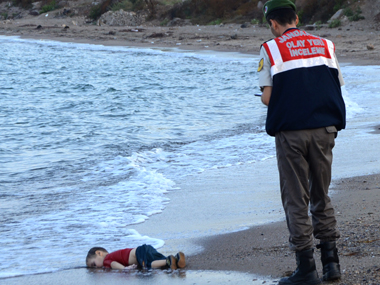)




)
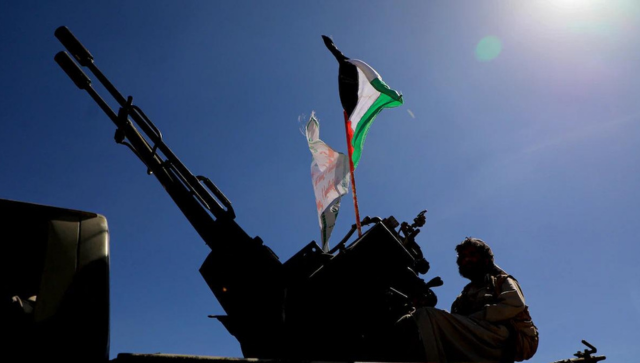)
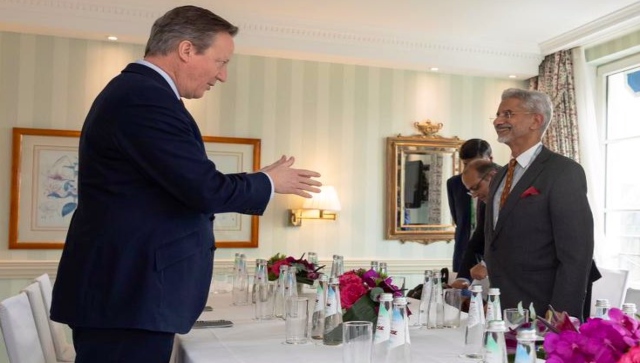)
)
)
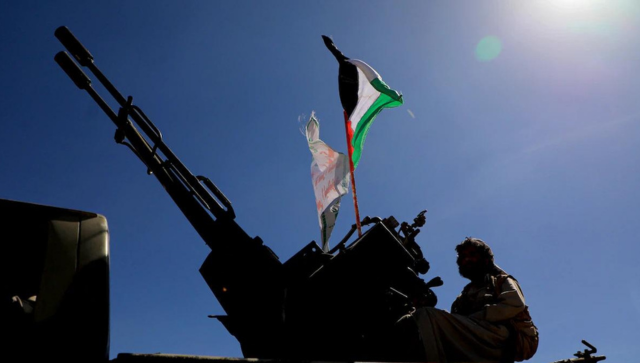)
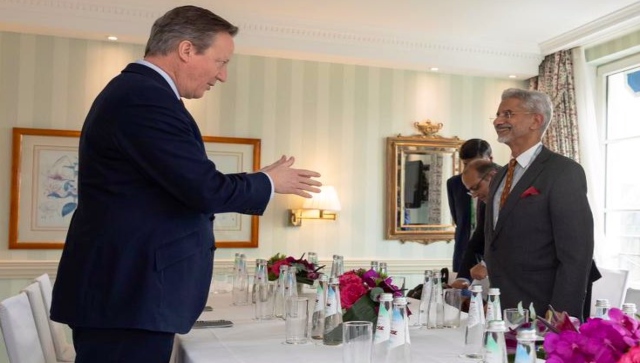)
)